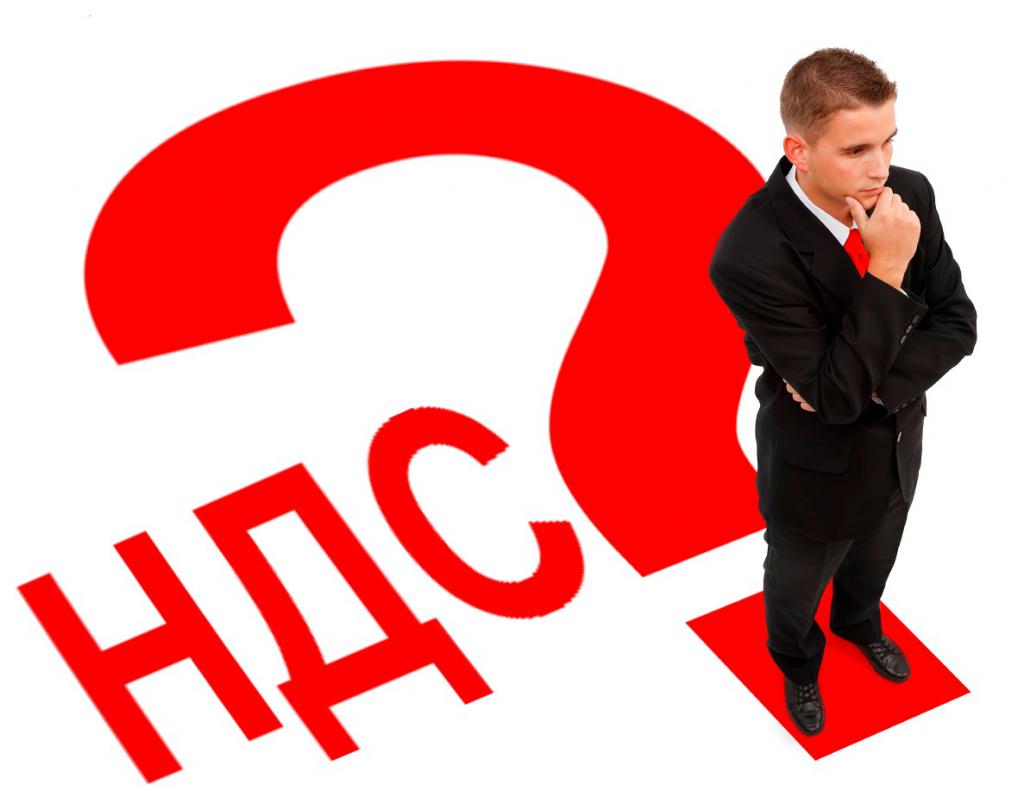Value added tax is a very important indirect tax. In many countries, it is at least a quarter of the revenue side of the budget. In this article we will consider the procedure for accounting for VAT on advances received and issued, and also tell about the history of this tax in Russia.
Deposit VAT processing and advance payments
One of the requests that constantly appears is the processing of VAT deposits.
This may be due to the fact that there are different types of deposits with different VAT rules for each. In general, we consider tax point rules. A tax office is the time during which the income tax will go away and the value added will be reimbursed.
A business may have various commercial agreements for such payments as:
- receipt of advance payments;
- sale of loans;
- periodic payments for continuous deliveries;
- security deposits for hired goods.
They are discussed below, as well as some specific measures. Restoring VAT from an advance payment issued is a very difficult economic topic, it has many pitfalls.
Advance Payments and Deposits
An advance payment, or deposit, is a fraction of the total selling price that a customer pays a business before he delivers goods or services to them.
The tax item, if the advance payment is made depending on which of the following occurs, looks like:
- Date of invoice for advance payment
- date of receipt of advance payment.
The VAT due at the cost of the advance payment is included in the refund for the period when a tax point arises.
If the customer pays the remaining balance before the goods are delivered or services are performed, the next tax item will be created when the following happens:
- date of invoice for balance;
- payment of balance received.
Thus, VAT should be on the balance sheet when returning when an additional tax point arises. You can also see that a VAT invoice from buyer advances is a fairly common occurrence.
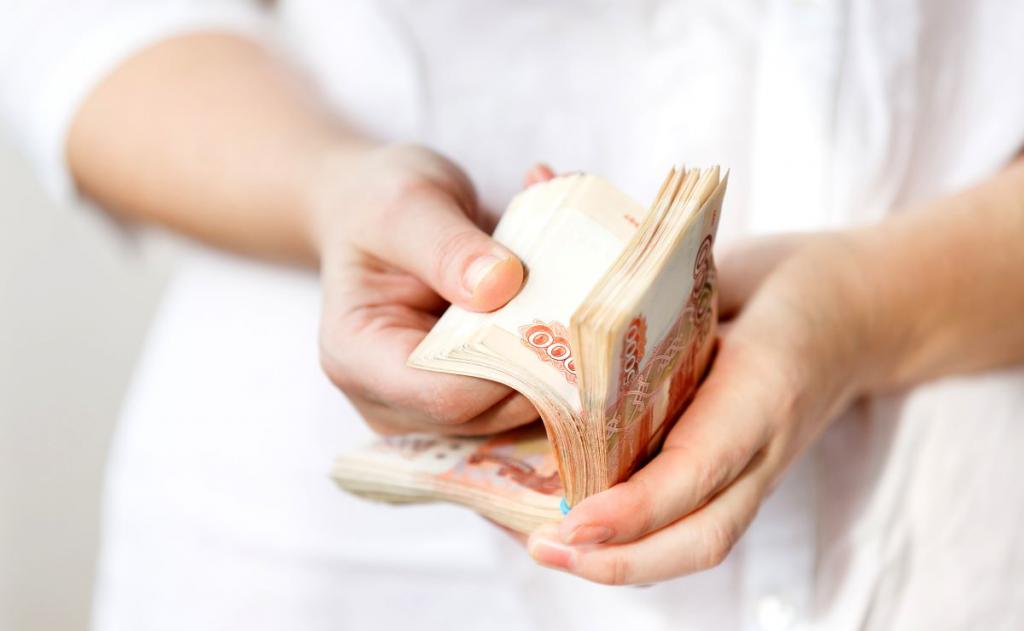
Refundable Deposits
A business may ask its customers to pay a deposit when they buy goods. When making a deposit, tax is not charged:
- fully returned to the customer when they safely return the goods;
- stored by you to compensate you for loss or damage.
Forex deposits
If the client is asked to make a deposit on goods or services, but then they do not buy them or do not use the services, a decision may be made to keep the deposit. Usually the arrangement is that the customer agrees in advance to him, and this is part of the conditions for the sale. This arrangement is known as a forfeit. This often happens when, for example, a hotel business charges a room reservation fee.
VAT must be declared upon receipt of a deposit or when an invoice is issued, whichever occurs first.
If the deposit is saved (because the customer changes his mind about the product or service and does not want them anymore), VAT is not levied since the delivery is not made. If income tax has already been declared, the business must adjust the amount of the remaining deposit at the next VAT refund. If the sale continues, the down payment rules apply.
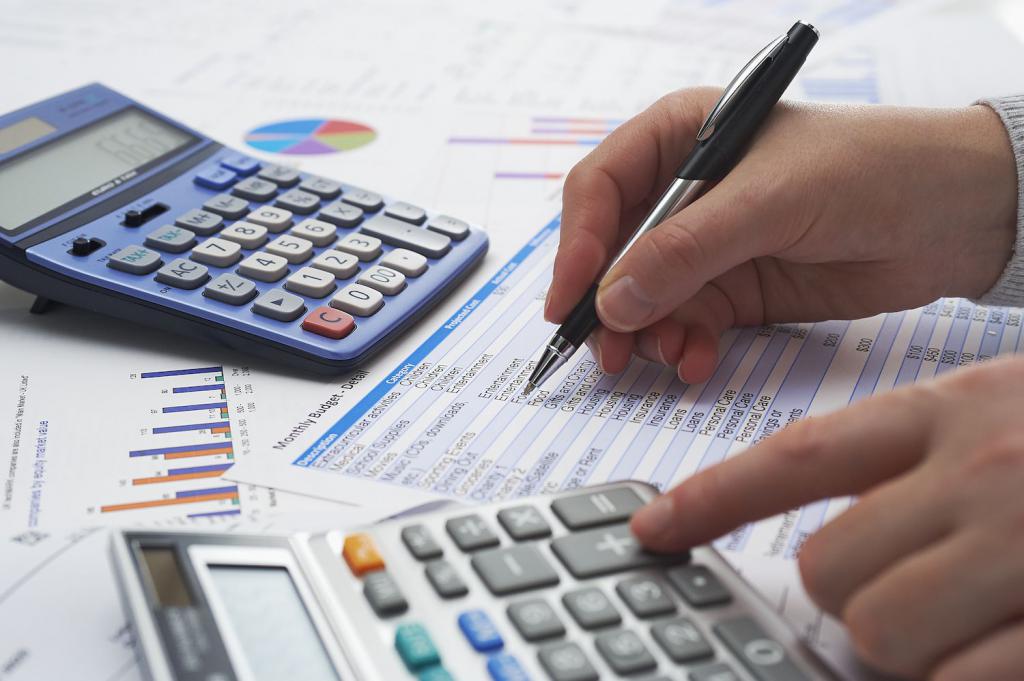
Continuous supply
If you provide services on an ongoing basis and receive regular or random payments, a tax point is created each time a VAT invoice is issued or a payment is received, whichever occurs first.
If payments are made regularly, the company can issue a VAT invoice at the beginning of any period up to a year for all payments due during that period (provided that more than one payment is paid). If at the beginning of the period it is decided to issue an invoice, no VAT will be declared on any payment until the date of payment or receipt is given, whichever occurs first. In this case, the invoice of the VAT invoice from advances is considered according to other rules. Here it already depends on the Tax Code of the state in which such a situation occurred.

Credit and conditional sales
Here the rules can become more complex:
- Selling a loan means selling goods that immediately become the property of the client, but where the price is paid in installments.
- A conditional sale is where goods are delivered to the customer, but they remain the property of the seller until they are fully paid.
A tax point for the sale of a loan or a conditional sale is created at the time the goods or services are provided to the client. This is the main tax point, and then you should consider VAT on the full cost of the goods.
This base tax point can be overloaded and the actual tax point is created if the business:
- issues an invoice or receives payment before the delivery of goods or services;
- issues a VAT invoice up to 14 days after the base tax point.
Credit sales when financing is provided to a client
If the goods are offered on credit to the client, and the financial company is not involved, the supplier finances the loan itself. If the credit estimate is indicated separately for the invoice issued to the client, it will be exempt from VAT. Other loan-related fees, such as administration, documentation, or admission fees, will also be exempted. VAT is declared at the full value of the goods that were delivered for tax refund for this period.
If goods or services are provided on an interest-free loan by arranging with a client to pay them over a specified period without charging their interest, then VAT is declared at the full sale price upon delivery.
Credit sales with a financial company
When a business makes credit sales with a financial company, the latter either:
- Becomes the owner of the goods, for example, when the purchase is financed by the contract of sale.
- Does not become the owner of the product, for example, when the purchase is financed through a loan agreement.
Sales contracts
If a financial company becomes the owner of the goods, the business delivers the goods to the financial company, not the client. There is no fee for providing a loan, therefore, the seller takes into account VAT at the cost of the goods at the time of their delivery to the financial company. Any commission received from a financial company to be presented to a client is usually subject to VAT.
Loan agreements
If the financial company does not become the owner of the goods, the supplier sells the goods directly to his client. A business does not deliver goods to a financial company, although the latter may pay the seller directly. VAT is due at the selling price to the client, even if the seller receives a smaller amount from the financial company. The contract between the client and the financial company for lending is a completely separate transaction for the sale of goods.
Cash flow chart
If a business uses a cash accounting scheme, it accounts for the output tax. When he receives payment from his customers, if he is not a refundable deposit, the procedure for accounting for VAT in this case does not change.
Property
Caution should be exercised with deposits in real estate transactions. This is especially important if the property is purchased at auction.
These comments apply only to the purchase of property for which VAT is levied (taxable commercial property).If a deposit is paid to an interested party, a solicitor's account or a deposit account (usually during an exchange), and the seller does not have access to this money until completion, a tax point is not created.
Otherwise, any advance payment is processed as described above and creates a tax point at which the output tax depends on the size of the deposit amount. Sellers at auction may be mistaken in these rules. If no other tax point has been created, income tax should be completed.
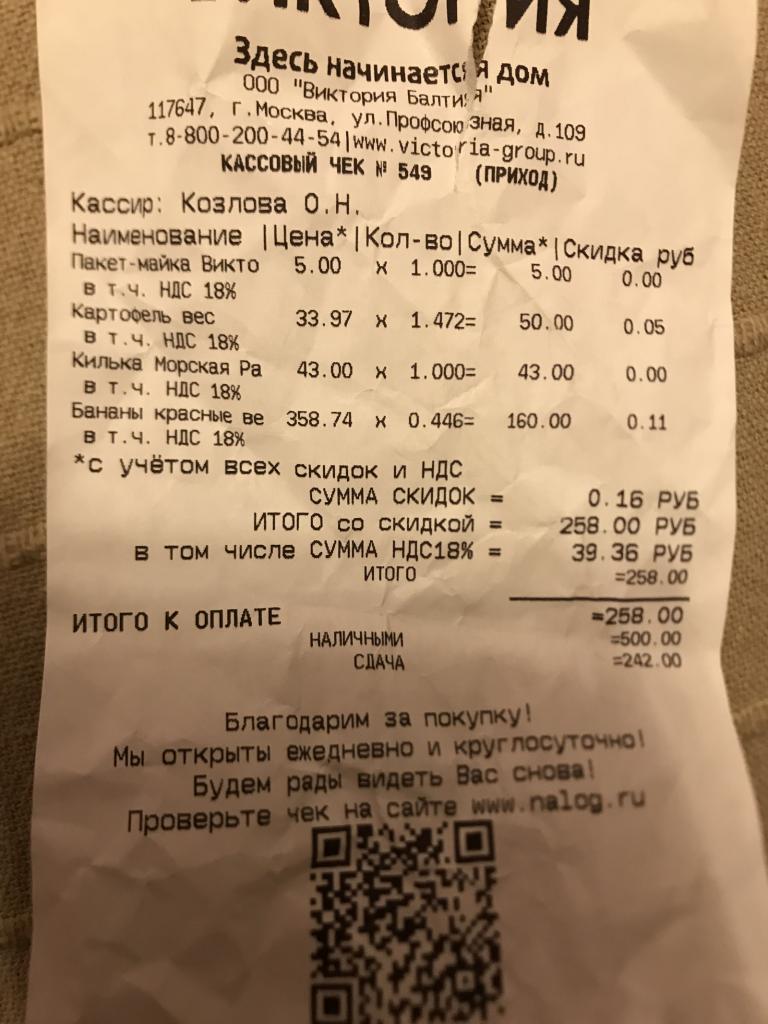
Tour Operator Margin Scheme (TOMS)
TOMS has clear deposit rules. Under normal VAT rules, a tax item usually arises when issuing an invoice or receiving a payment (as indicated above). At TOMS, the normal delivery time is the date of departure or the first employment. However, in some cases this is overridden. If the tour operator receives more than one payment, it may have several tax points. Each time you receive a payment of more than 20% of the sale price, a tax point is created for this amount.
It is also created every time payments received to date (and not yet taken into account) exceed 20% when added together. There are options for deposits received when working with TOMS, so you need to look for specific recommendations.
VAT registration
When calculating the turnover for registration, it is necessary to include deposits that create a tax point in the “historical” test. Care should also be taken to ensure that a large deposit does not initiate an immediate VAT registration due to the “future” test. If at any time it can be expected that the revenue over the next month will itself exceed the turnover limit, and now it is, for example, 85,000 pounds, then the registration date will be the beginning of this 30-day period.
Fixed rate scheme
The business applies the appropriate fixed rate to the value of the deposit received (if it is not repayable). In most cases, the issue of an invoice can be ignored if you take into account the possibility of using the cash register version in a fixed rate scheme. In the scheme with the last VAT from advances paid, it can be either more than without a fixed rate, or less, it all depends on the cost of the goods, what kind of goods and so on.
Value Added Tax (VAT) in Russia
In economic terms, VAT is an indirect tax that is included in the price of goods and paid by the buyer to the seller. The latter is the transfer of tax to the government. But legally - this is the seller, not the buyer, who is considered a VAT taxpayer (that is, the one who is legally responsible for paying it).
Taxpayers for VAT purposes are all Russian legal entities and individual entrepreneurs with certain exceptions, which we will consider below.
Foreign legal entities are required to register as taxpayers in Russia when their presence in the country meets certain criteria. It should be noted, however, that a foreign legal entity may also be required to pay VAT even without the presence of a Russian presence in cases where their activities are subject to taxation according to the delivery rules. In this case, if a foreign legal entity has several divisions in Russia in different cities or municipalities, then it can choose to submit its reports on VAT compliance and pay taxes for all divisions through one of them. The local tax office at each location must be notified in writing of the choice (section 174).
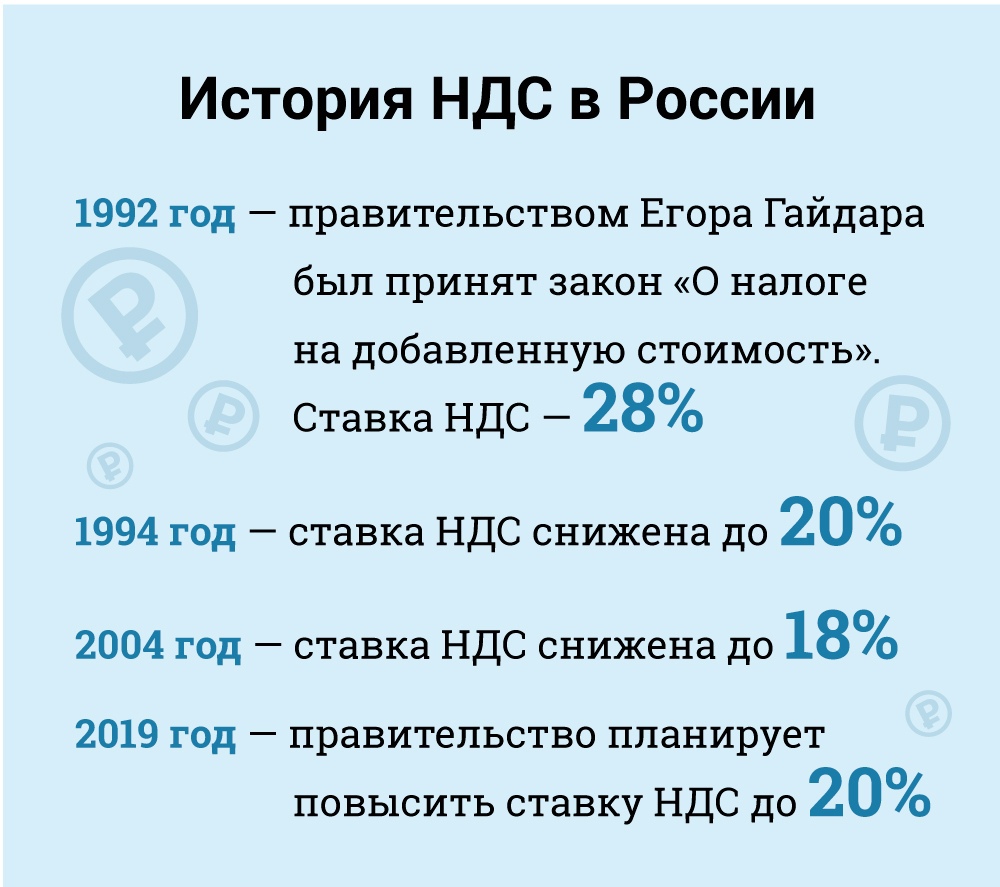
Exempted Taxpayer Categories
Certain categories of taxpayers are exempted from VAT obligations. It:
• Small businesses that meet certain criteria.
• Companies and individual entrepreneurs accredited as participants in the Skolkovo Innovation Center.
• Companies and individual entrepreneurs using a simplified tax system.
• Companies and sole proprietors applying the single imputed income tax regime (but only in relation to types of activities subject to imputed income tax).
• Foreign organizers, marketing partners or broadcasters for the Sochi 2014 Olympic Games and Paralympic Games with appropriate confirmation of such an exempted status.
By law, small businesses are exempted from acting as a VAT payer. This exemption is granted to small enterprises with sales income of less than 2 million rubles for three consecutive months (Article 145).
Exemption is not possible for VAT on imported goods payable at customs, and for those taxpayers who are responsible for excise tax (in respect of excisable goods). The taxpayer applying the exemption is not required to levy a tax or submit declarations, but he must pay the VAT charged by his suppliers when the latter pay in the normal mode.
To exercise the right to this exemption, the taxpayer must notify the local tax office of his intention to use the exemption in accordance with the established form and by submitting a number of supporting documents (balance sheet, accounting, etc.).
In practice, tax authorities are reluctant to grant this tax exemption to taxpayers and are often resourceful in finding reasons to waive a right. For example, they believe that it is impossible to exclude a company from VAT obligations if it has not had income for the entire three-month period (letter of the Ministry of Finance N 03 -07-14 / 11 of 03/28/2007). However, it is considered that this is unreasonable, since the Tax Code does not establish any requirements regarding the minimum income threshold to qualify for exemption. This conclusion found support in judicial practice (Resolution of the Federal Arbitration Court for the Ural Federal District N Ф09-3020 / 07-С2 in the case N А60-34201 / 06 of 05/02/2007).
The exemption is valid for 12 consecutive months, starting from the time of filing the application with possible extensions for subsequent 12-month periods. After exemption, taxpayers cannot refuse such an exemption before the expiration of the 12-month period for which it is granted, with the exception of cases of loss of the right to exemption as a result of exceeding income thresholds or selling excisable goods.
But there are risks associated with applying this exception. If the sales proceeds exceed the threshold, then from the first day of the month in which the threshold is exceeded, all proceeds will be considered subject to VAT, which requires canceling previously non-taxable transactions. Naturally, in this case it would be difficult to convince customers to change the nature of the transaction and transfer the required VAT.
In September 2010, the Tax Code was amended to introduce a series of tax incentives for participants in the Skolkovo Innovation Center project. Among other benefits, participants can be exempt from VAT. In general, this exemption is similar to that granted to small enterprises.
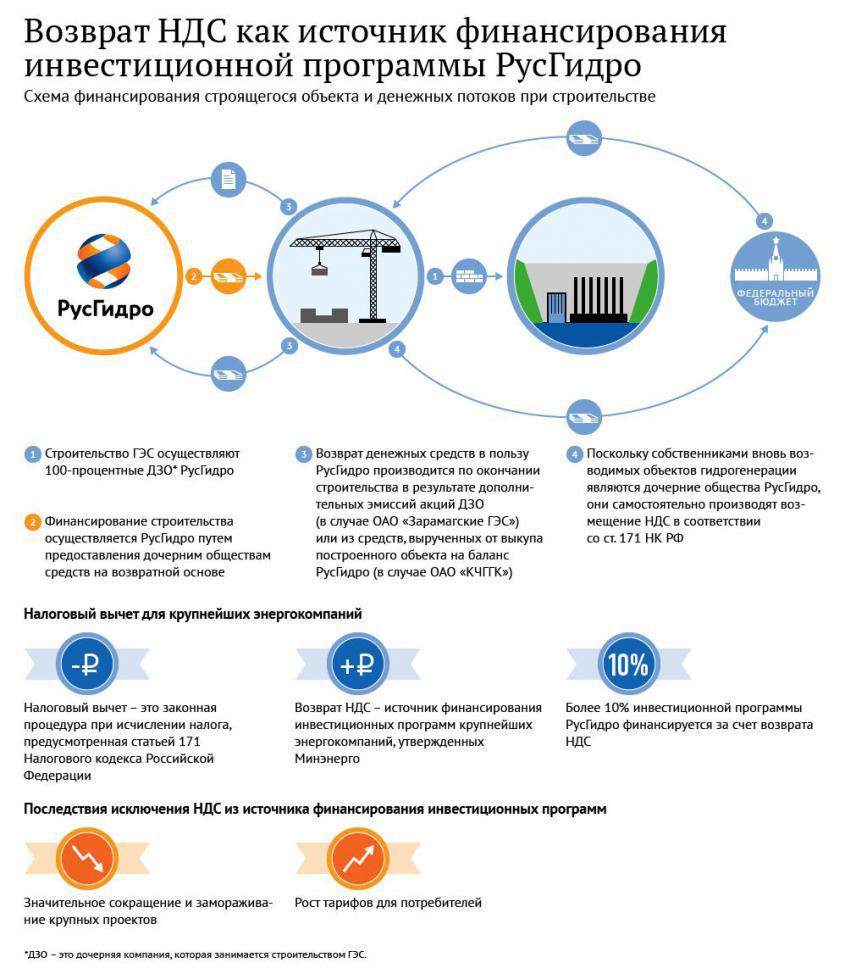
Tax rates
Tax rate (Article 164): standard - 18%.
A rate reduction of 10% is applicable for:
• Sale of basic food products.
• Selling certain types of products for children.
• Sale of medicines.
• Sale of periodicals (excluding advertising and erotica), scientific literature and textbooks.
Zero rate is applicable for (subject to certain conditions):
• Exported goods.
• Sales to diplomatic missions and their staff, including family members.
• Sales of goods (works, services) in the field of aerospace industry.
• Carriage of passengers and baggage, where either the departure point or destination is located outside of Russia.
• Cargo transportation services in connection with export and import.
• And for other cases, which are mainly auxiliary to transport services. At these rates, you learned the calculation of VAT.
Subject of taxation
VAT applies to the following types of transactions (Article 146):
• Sales (including barter) of goods, works and services, transfer of property rights in Russia.
• Alienation excluding (free of charge) goods, works and services.
• Import to Russia (VAT at customs).
• Transfer of goods and services purchased or produced for the company's own consumption, that is, not intended for use in business (resale or inclusion in resellable goods and services). This category includes construction and installation works.
• The transfer of goods and services for own consumption is subject to VAT only if the corresponding costs are not deductible for income tax purposes. However, construction and installation work is subject to VAT, although related costs will be deductible for income tax.
It is worth noting that according to the Tax Code, the transfer of goods and services is subject to VAT, and not the purchase or production of goods and services for own consumption. The Tax Code does not define the concept of transfer. And the Tax Authorities filled this gap by stating that goods and services for own consumption are subject to VAT only if they are transferred to taxpayer units.
If goods and services for own consumption are not transferred to units, VAT will not be charged (letter N 03-1-08 / 204/26-В088 of the Ministry of Taxes and Dues of Russia of 01.21.2003, letter N 03-04-11/1/132 Ministry of Finance from 06.16.2005). Knowing the rates, as well as which products fall into which category, you can calculate VAT. Then you will know how much tax you paid to the state.
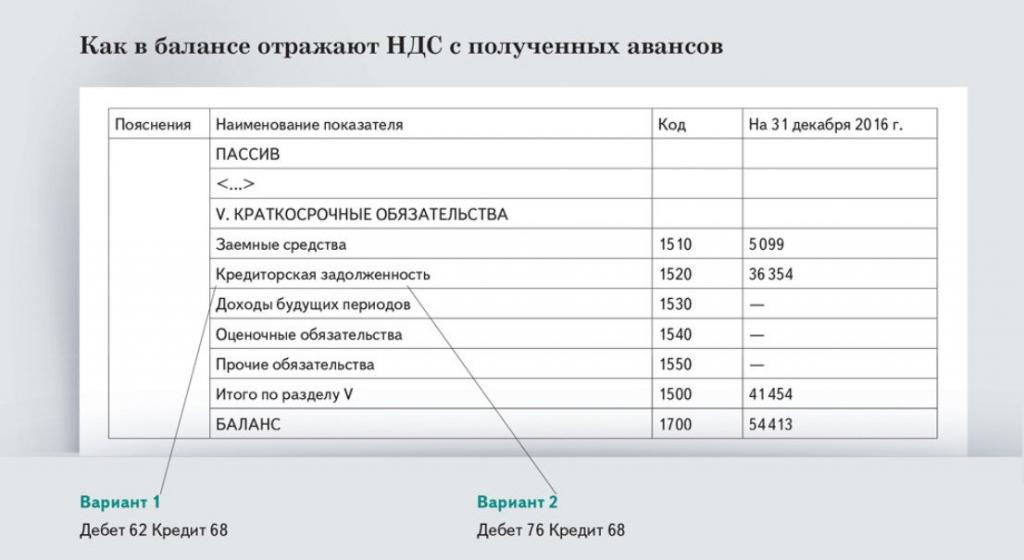
Conclusion
In this article, you learned what VAT is and how to calculate VAT on advances received and issued. This is a very important part of economic knowledge. After all, knowing how much we pay taxes helps to soberly talk about the situation around.
